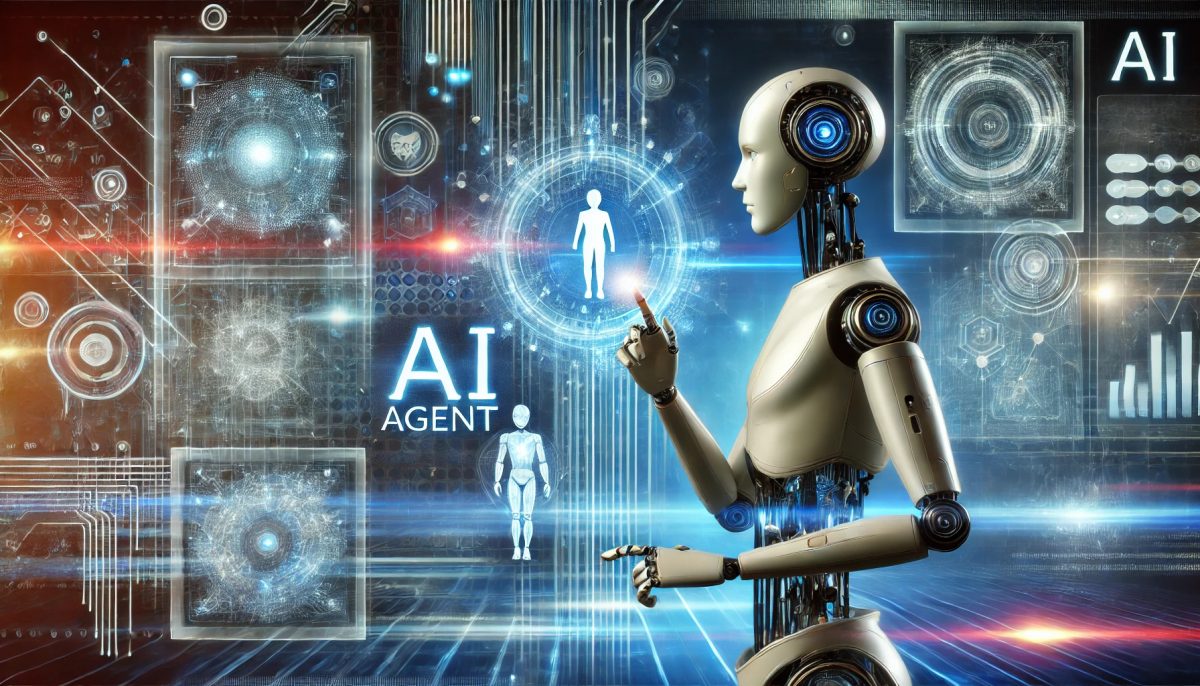In today’s rapidly evolving world of artificial intelligence (AI), the question “What are AI agents?” has become increasingly relevant. These intelligent systems are transforming how we interact with technology and automate tasks in various industries. But what exactly are AI agents, and why are they so important? Whether you’re a tech enthusiast or just starting to explore the field, this guide will explain their purpose and reveal how they’re shaping industries today.
What Is an AI Agent?
An AI agent is a program or system capable of perceiving its environment, making decisions, and taking actions to achieve specific goals. In simpler terms, think of it as a digital “worker” designed to learn, adapt, and solve problems autonomously.
Key Features of AI Agents
To better understand how these intelligent systems operate, it is essential to examine their key components:
- Perception: Agents use sensors or inputs to gather information, such as text, images, or data streams.
- Reasoning: Next, they evaluate options, predict outcomes, and make decisions based on their objectives.
- Action: Finally, they execute tasks, whether it’s interacting with software, users, or even the physical world.
From simple chatbots to sophisticated self-driving cars, these systems come in many forms. Moreover, they are designed to tackle tasks humans might otherwise handle, making them invaluable in numerous fields.
Types of AI Agents
AI systems vary in complexity and purpose. Understanding their types can help clarify their roles.
1. Reactive Agents
Reactive agents represent the simplest form of artificial intelligence. Specifically, they respond to their environment without retaining past experiences.
- Example: Spam filters that classify emails as spam or not using predefined rules.
2. Goal-Based Agents
Goal-based systems are designed to achieve specific objectives. They rely on planning and reasoning to make decisions, thus enabling them to complete their tasks efficiently.
- Example: Navigation apps like Google Maps, which find the best route to your destination.
3. Learning Agents
Learning agents, in contrast to reactive ones, are capable of improving over time. They use techniques like machine learning or reinforcement learning to adapt based on experience.
- Example: Movie recommendation systems like Netflix, which adjust to your viewing preferences.
4. Autonomous Agents
Autonomous systems operate independently without user input. As a result, they can handle complex tasks autonomously.
- Example: Robots in manufacturing plants assembling products.
Therefore, the type of intelligent system chosen depends on the complexity and requirements of the task at hand.
Why Are AI Agents Important?
AI-driven systems are revolutionizing how we interact with technology and handle tasks across industries. Let’s take a closer look at why they matter:
- Automation: First and foremost, they streamline repetitive tasks, allowing humans to focus on creative and strategic work.
- Personalization: Furthermore, these systems tailor experiences to individuals, whether through shopping recommendations or customized learning paths.
- Efficiency: By analyzing data quickly, they enhance productivity in industries like healthcare, finance, and logistics.
- Innovation: Most importantly, they drive advancements in fields like autonomous driving, natural language processing, and smart home technologies.
As a result, agents powered by artificial intelligence are becoming indispensable in the modern world.
Real-World Applications of AI Agents
These systems are already part of our daily lives. For example, here are some key applications that highlight their real-world impact:
1. Virtual Assistants
Virtual assistants like Siri, Alexa, and Google Assistant help with everyday tasks. For instance, they set reminders, answer questions, and control smart home devices seamlessly.
2. Customer Service Chatbots
Customer service chatbots resolve inquiries 24/7, thereby reducing wait times and improving customer satisfaction.
3. Gaming
In the gaming industry, intelligent systems create smart opponents or characters. Consequently, they enhance the gameplay experience significantly.
4. Healthcare
In the healthcare industry, AI-powered solutions assist doctors by analyzing medical data, predicting outcomes, and managing patient interactions.
In addition, these applications demonstrate how artificial intelligence is reshaping industries, making them more efficient and user-focused.
The Future of AI Agents
As technology evolves, intelligent systems are becoming more sophisticated, intuitive, and integrated into our daily lives. In the near future, they could act as personal advisors, creative collaborators, and even emotional companions.
However, this evolution comes with challenges. For instance, ethical concerns arise regarding how such systems act responsibly. Similarly, protecting user data is essential to ensure privacy. On the other hand, malicious use of AI poses a critical risk that must be addressed.
Therefore, it is crucial to balance innovation with responsibility to ensure these solutions benefit society as a whole.
Final Thoughts
AI-powered systems are no longer just science fiction—they’re actively shaping industries and redefining how we live and work. Furthermore, by understanding their capabilities and potential, we can embrace their benefits while addressing the challenges they present.
Have you encountered intelligent agents in your daily life? If so, share your experiences and thoughts in the comments below! Don’t forget to explore more insights into technology and innovation here on MageTrail.com.

